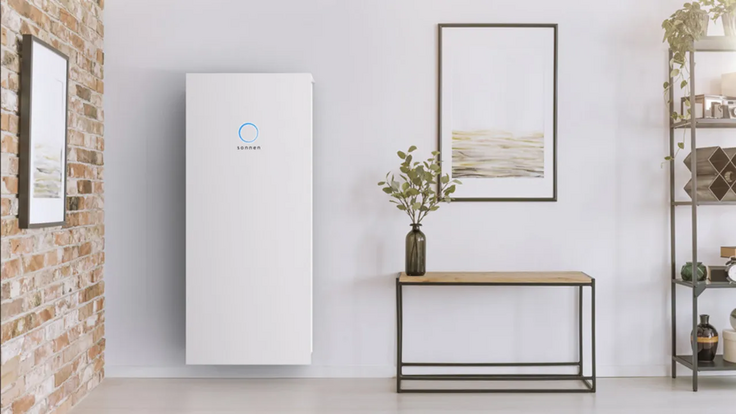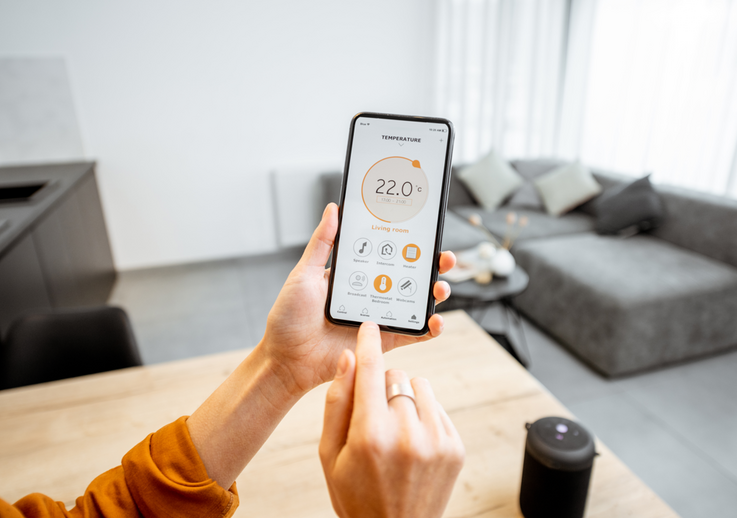20. Jun 2023
Is a smart home more sustainable?
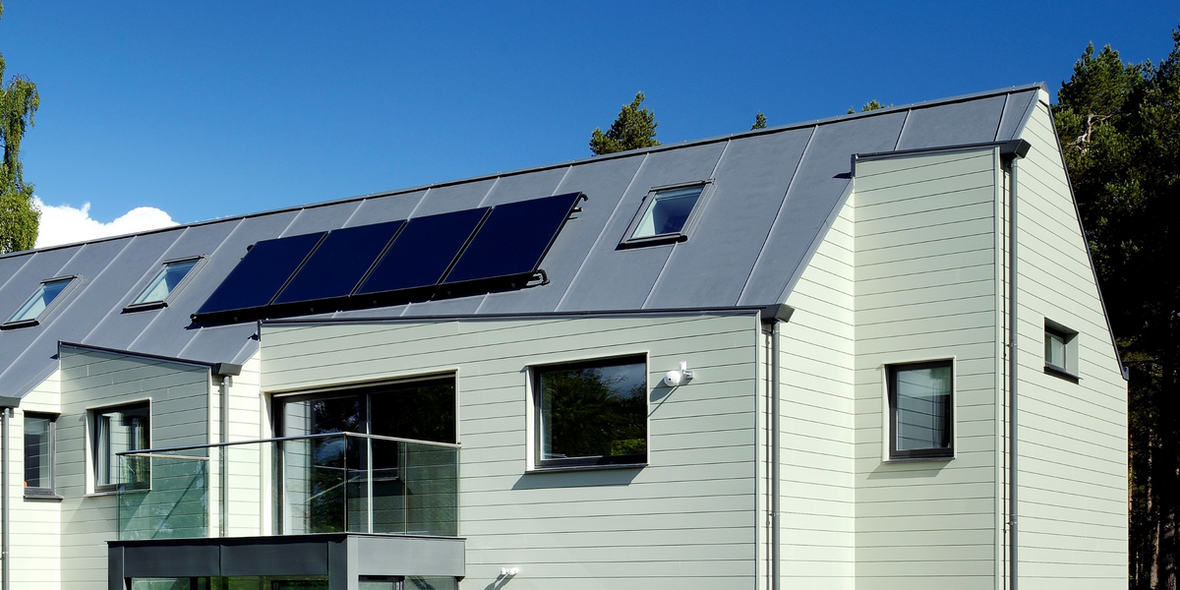
Smart homes have become the equivalent for sustainable housing. With applications such as smart meters, and automation options for your electronic devices, homeowners are able to seriously cut back on their energy consumption and consequently reduce their carbon footprint.
High in demand: sustainable housing
Everyone is on the hunt for a house that’s well insulated, is equipped with economical features and, as a cherry on top, has a low emission rate. Unlike a sunny yard or new kitchen, homeowners are able to easily enhance their property’s durability score by implementing smart technologies within their existing space (without major renovations). In this article we’ll discuss what smart appliances and automation hacks have the greatest impact on sustainable living.
Monitoring your energy consumption: from smart meters to battery storage
Altering your energy consumption is as important as keeping track of it. Sure, turning your heating a degree lower is bound to have an effect on your energy bills. There are, however, more efficient ways to reduce your overall carbon emission and electricity consumption. Smart meters, for one, are a great tool to assemble insights in your household’s energy use. This incredibly nifty application is able to identify energy-heavy parts and devices of your home. It also allows homeowners to evaluate distinctive energy sources, such as voltage, fuel and power factor. This way, you’ll quickly discover which home improvements will benefit you the most.
Another smart appliance you should keep your eye on is smart battery storage, at least if you have or are considering solar panels.
Profiting from the sun’s energy is the most common renewable energy source. Adding a battery storage device to the mix allows you to literally set aside excessive energy, gaining you a little bit more independence from the network and providers.
Learn more about the Sonnen batterie
Cracking the code: sustainable automations and appliances
A smart home isn’t necessarily an automated home. Automations are fixed processes that will run according to a set pre-installed schedule and commands. Deactivating your heating system, for instance, every weekday during working hours prevents you from unknowingly wasting energy. Same goes for ventilation, lighting or so-called ‘phantom loads’ (devices that are not actively being used, but still consume a small amount of power in standby mode).
Important to know: automations can be overridden by the homeowner at any time. So, let’s say, you’re on a trip for the weekend. You can simply shut off all your smart appliances from your control panel or app for two days. Once you've turned them back on, the automations will follow their usual course.
Smart technology offers the solution to long-term, sustainable living. Investing in the right smart appliances helps you reduce your household’s energy consumption and limit your emission contribution.
Highlights
-
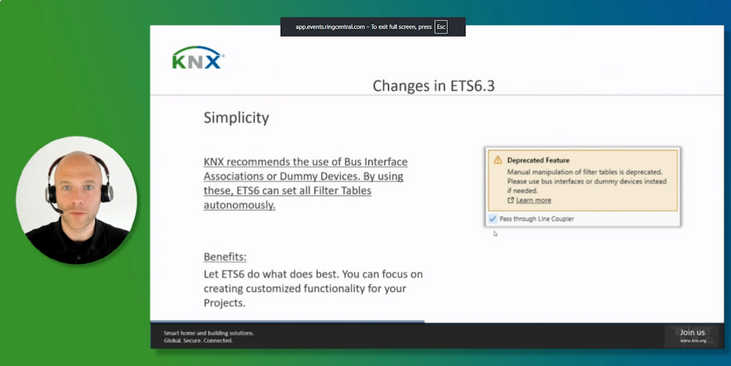 Press
PressETS6 Roadshow 2025 marks global success, showcases power of ETS6.3
ETS6 takes center stage during the month of May with 24 roadshow stops all over the world. -
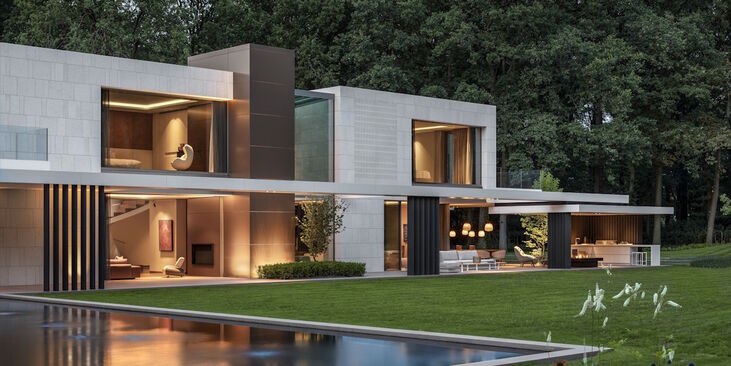 News
NewsThe KNX Journal 2025 is now available
The latest edition of our annual smart home and building solutions magazine has arrived. The KNX Journal 2025 offers ... -
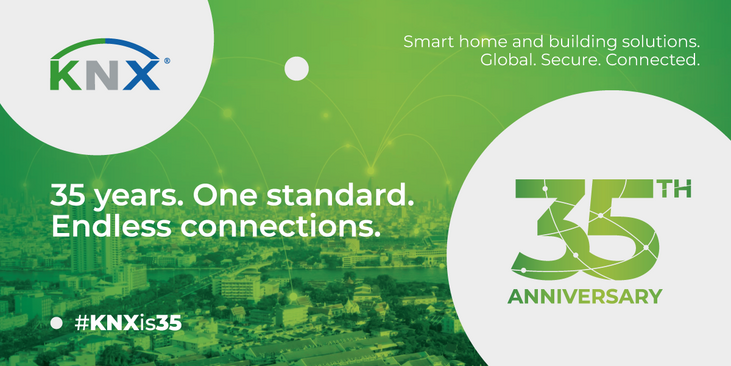 KNXtoday
KNXtoday#KNXis35: KNX history and evolution
KNX is 35. This worldwide building control standard, initiated by a handful of visionary European manufacturers, now has ...

